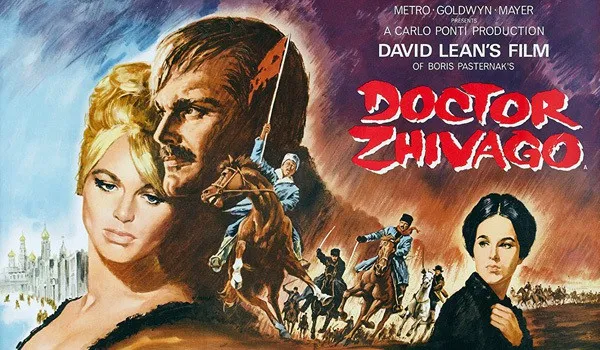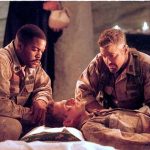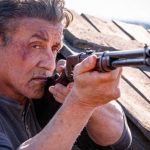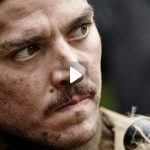Doctor Zhivago (1965)

“Doctor Zhivago,” directed by David Lean and released in 1965, is a cinematic adaptation of the renowned novel by Russian author Boris Pasternak. The film stands as a testament to Lean’s directorial genius, capturing the tumultuous backdrop of the Russian Revolution while delving into the personal struggles of its characters. This sweeping epic not only showcases the beauty of Pasternak’s prose but also highlights the profound impact of historical events on individual lives.
At the heart of “Doctor Zhivago” is the story of Yuri Zhivago, portrayed by Omar Sharif. Yuri is a compassionate and introspective physician and poet whose life becomes intricately intertwined with the political upheaval of his time. As he navigates the chaos of war and revolution, his character represents the struggle for identity and love amidst the backdrop of a society in turmoil. The film effectively captures his internal conflicts and emotional depth, making him a relatable and compelling protagonist.
The narrative unfolds against the sweeping landscapes of Russia, from the serene beauty of snow-covered fields to the devastation of war-torn cities. Lean’s masterful cinematography captures the vastness of the Russian landscape, using it to symbolize the characters’ emotional journeys. The visuals serve as an essential storytelling tool, complementing the rich and poignant script. The film’s iconic imagery, such as the scenes of Yuri and Lara in the snow, has become emblematic of classic cinema.
Lara Antipova, portrayed by Julie Christie, is another central figure in this epic tale. Her passionate and tumultuous relationship with Yuri drives much of the narrative. Lara is a complex character, embodying strength and vulnerability. Her life, marked by struggles against societal norms and personal loss, mirrors the larger conflicts occurring in Russia during the revolution. The chemistry between Sharif and Christie is palpable, drawing viewers into their heart-wrenching love story that transcends the political chaos surrounding them.
The film’s supporting characters also add depth to the narrative. The character of Komarovsky, played by Rod Steiger, serves as a foil to Yuri. His ruthless pragmatism contrasts sharply with Yuri’s idealism, showcasing the moral dilemmas faced by individuals during times of great upheaval. This dynamic enhances the film’s exploration of love, sacrifice, and the human condition in the face of adversity.

“Doctor Zhivago” is not only a tale of love but also a commentary on the impact of war on society. The Russian Revolution serves as a backdrop that influences every character’s fate. The film vividly portrays the struggles of ordinary people caught in the crossfire of historical events, emphasizing the personal costs of political turmoil. Through the lens of Yuri and Lara’s relationship, Lean illustrates how love can be both a sanctuary and a source of suffering during chaotic times.

Despite its artistic achievements, the film faced significant challenges upon its release. Boris Pasternak’s novel had been banned in the Soviet Union since 1958, a reflection of the political climate that stifled artistic expression. It wasn’t until 1988 that the novel was published in the USSR, allowing a new generation to engage with Pasternak’s profound insights. The film, however, found success in the West, becoming an instant classic and garnering several Academy Awards, including Best Adapted Screenplay and Best Cinematography.

The musical score by Maurice Jarre is another standout element of “Doctor Zhivago.” The haunting melodies beautifully complement the film’s emotional landscape, enhancing key moments and deepening the viewer’s connection to the characters’ experiences. The score remains iconic, evoking nostalgia and melancholy long after the credits roll.

In conclusion, “Doctor Zhivago” is a monumental film that transcends its historical context to explore timeless themes of love, loss, and the resilience of the human spirit. David Lean’s masterful direction, coupled with powerful performances from a stellar cast, creates a cinematic experience that resonates with audiences even decades after its release. The film stands as a significant cultural artifact, reflecting the complexities of a turbulent era while inviting viewers to reflect on their own lives and relationships. As a poignant adaptation of Pasternak’s literary masterpiece, “Doctor Zhivago” remains an enduring testament to the power of storytelling in capturing the human experience.
Suggested videos for you:
Suggested videos for you:
Suggested videos for you:











